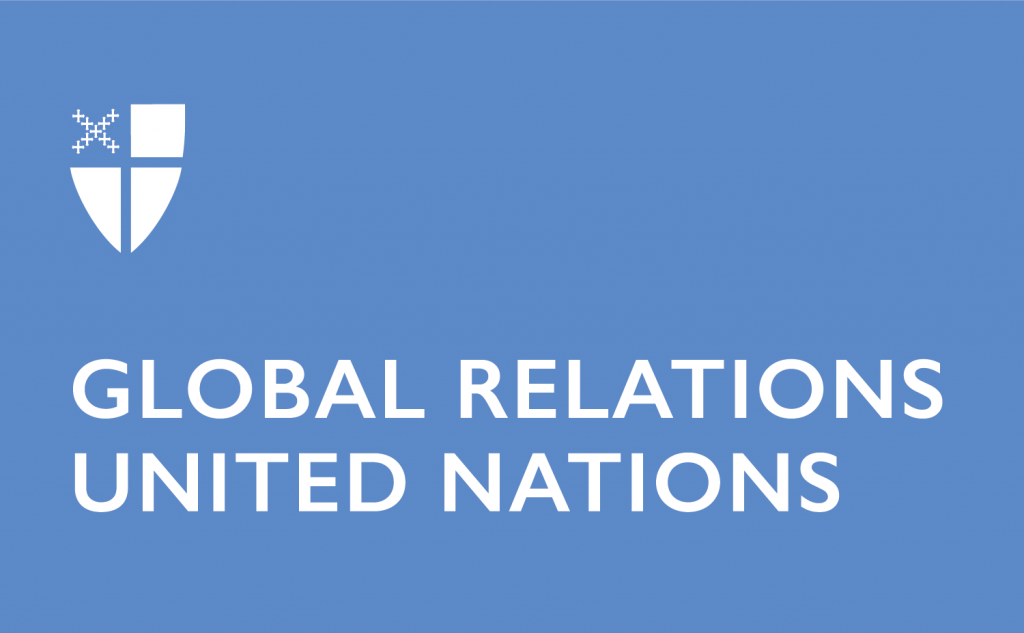Creation Care

As we are called by God to care for creation, The Episcopal Church supports policies that protect the natural resources that sustain all life on Earth. The Church calls for policies that reduce greenhouse gas emissions, promote sustainable energy, encourage the safe and just use of natural resources, and support communities impacted by a lack of environmental stewardship and environmental racism.
Featured Actions
Environmental Justice
The Episcopal Church is committed to advocating for and supporting legislation and other public policies that directly address climate change’s impacts on environmental justice communities. The Church supports investing in low-income and historically marginalized communities and opposes the disproportionate harm to them. Our General Convention affirms that no community, especially communities living in poverty, those who live closest to the land in subsistence cultures, and members of marginalized ethnic groups, should bear a the heaviest burden of environmental pollution or degradation. The Church supports a just energy transition which includes job transitions and protecting vulnerable communities from rising energy costs.
Biodiversity
Caring for creation means caring for other species and recognizing their role in a healthy and flourishing ecosystem. The Episcopal Church has historically supported policies like the Endangered Species Act as a part of this call. Biodiversity loss is a major component of our changing climate, and we advocate for its protection. Nature-based solutions help to reduce our carbon emissions, improve biodiversity, protect and maintain clean water, land, and air, and help local communities both nationally and internationally.
Climate Change and the United Nations
Together with The Episcopal Church’s Representative to the United Nations, we advocate on the international level at the UN to address climate change. We participate in the United National Framework Convention on Climate Change (UNFCCC) at the Conference of Parties, or CoP, an annual intergovernmental meeting focused on global dialogue and action on climate issues.

Episcopal Church Statement on Creation Care – 1/23/2025
The Green Climate Fund (GCF)
The GCF supports climate change mitigation and adaptation activities in regions of the world severely impacted by climate change. The United States has pledged 3 billion to the GCF, and the Episcopal Church advocates to the U.S. Congress to fully appropriate this funding.
Letter to Loss and Damage Fund Board Members – 4/30/2024
Climate Resiliency and Disaster Preparedness
In the U.S. and internationally natural disasters are becoming more severe, and communities, especially those that are marginalized or impoverished, face significant barriers to recovery. We advocate for federal programs that help communities prepare for and recover from natural disasters such as flooding, wind, and forest fires.
Episcopal Church Resources
Arctic Refuge
For thousands of years, the Gwich’in, an Indigenous people, many of whom are Episcopalian, have had deep connections to the land that is known today as the Arctic National Wildlife Refuge. The Gwich’in nation’s historic cultural and religious traditions designate a specific area of their land as “the sacred place where life begins.” The Episcopal Church has long stood by the Gwich’in, defending their right to existence and sustainability as this sacred land is under threat from oil exploration in the Coastal Plain of the Arctic National Wildlife Refuge.
Episcopal Church Resources
The Episcopal Church Statement on the Arctic Refuge (September 2023)
EPPN Creation Care Series
Addressing the climate crisis requires a multi-faceted approach – ranging from reducing greenhouse gas emissions to protecting and restoring ecosystems. We need policies at the local, state, and federal level, as well as strong international commitments to mitigate climate change and prevent the worst impacts. The educational pieces below outline evolving policy, from various proposals on carbon pricing to focusing on renewable energy. Our hope is that these series will help spur a movement for greater study, reflection, and conversation across the Church.
2021 series:
Partner Resources

ecoAmerica & Blessed Tomorrow
A program by people of faith, for people of faith, that offers ideas, tools and language to address the impacts to our climate. Check out these resources for tested messaging to deepen engagement within The Episcopal Church on the environment as part of our moral imperative to care for creation.
Partner Resources
Contact:
The Office of Government Relations
eppn@episcopalchurch.org

